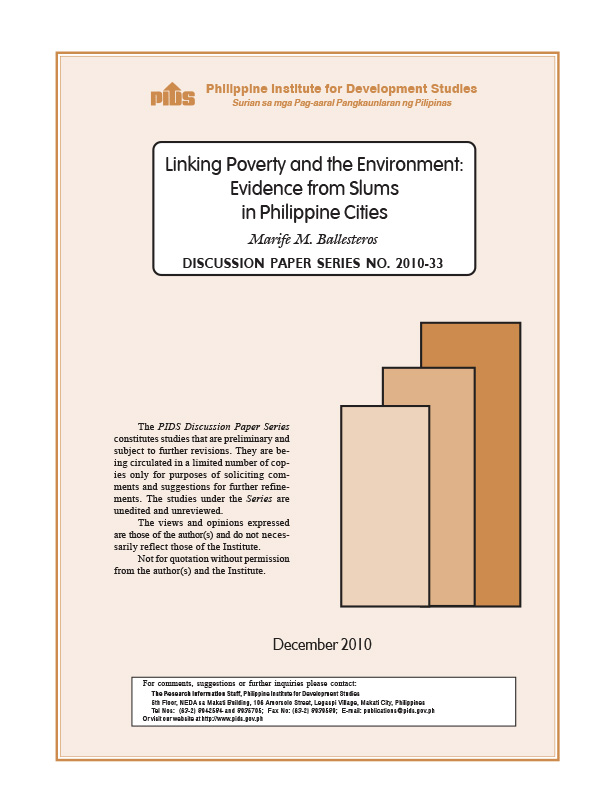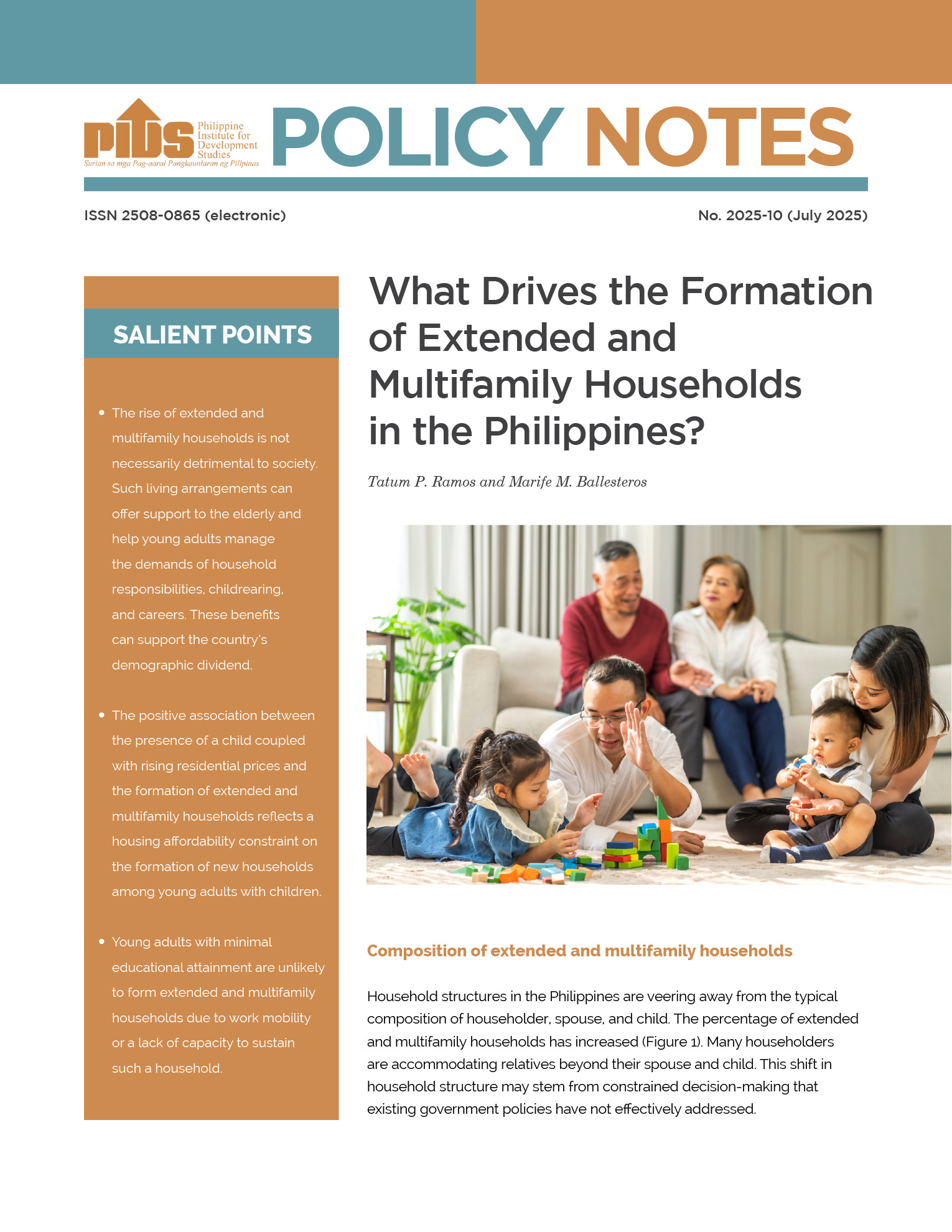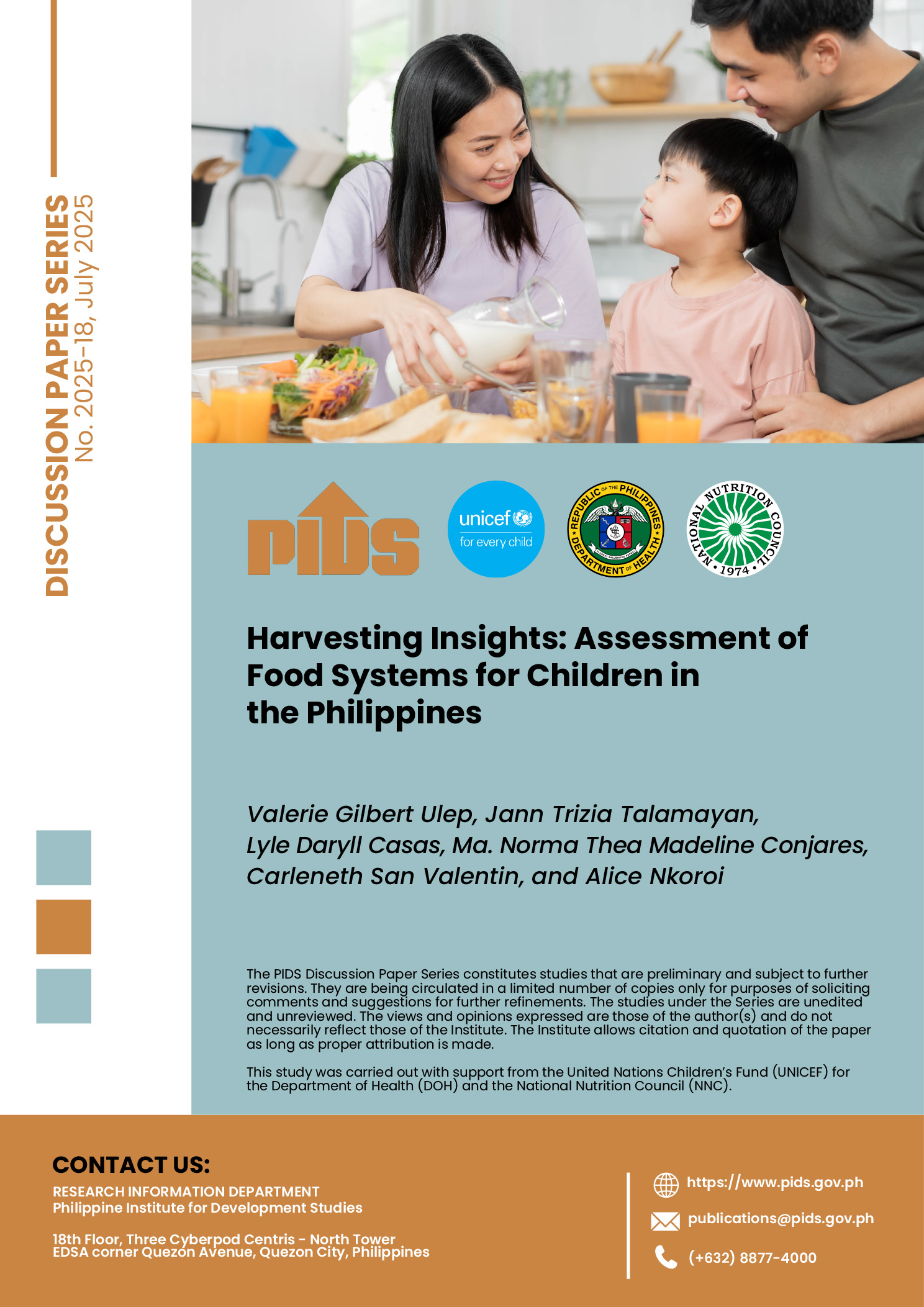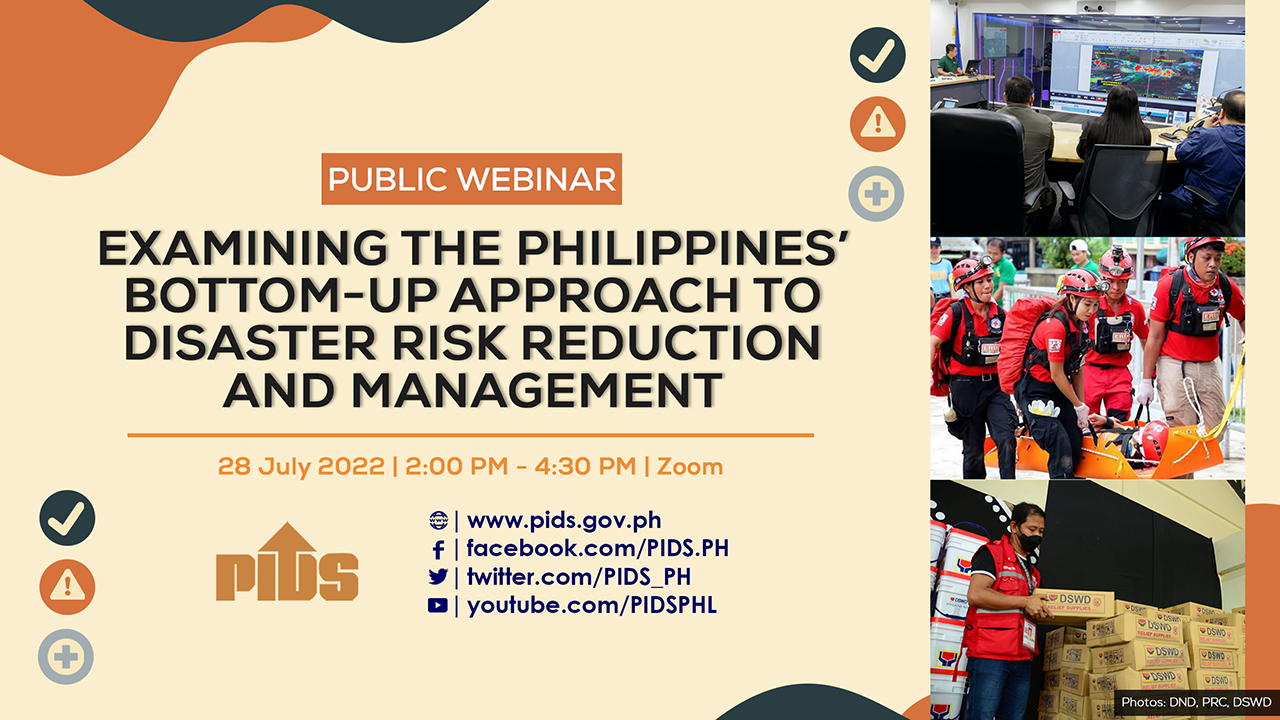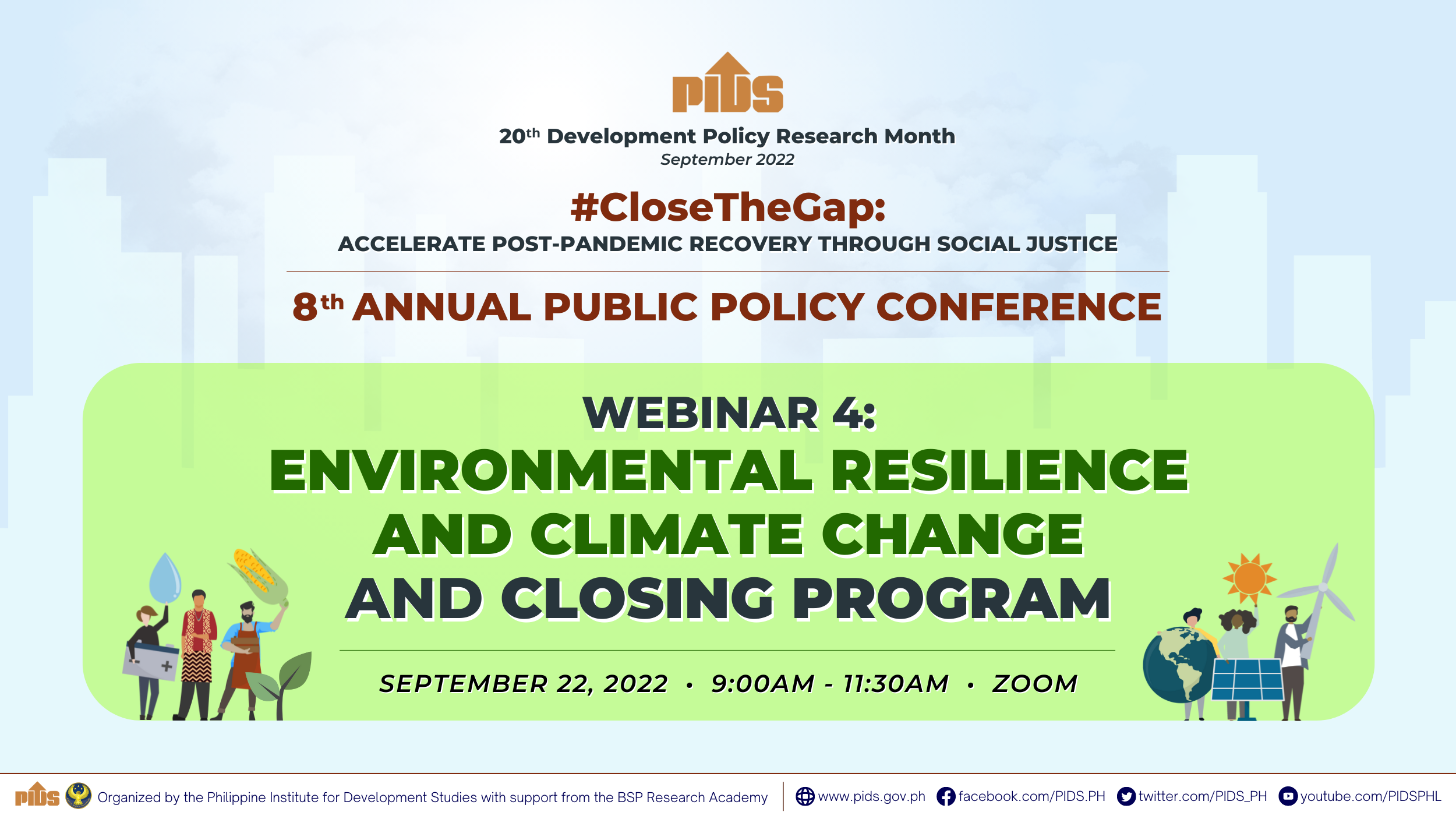This paper examines the linkages of poverty and environment at the household level in Philippine slums. Rapid urbanization and the inadequate infrastructure and basic services in large towns and cities have led to the proliferation of slums and informal settlements in the country. While poverty incidence of the population in key metropolitan centers is on average 17 percent compared to the national average of 32 percent, slum population has been exponentially rising at an average rate of 3.4 percent. In Metro Manila, which is the prime city, an estimated 37 percent of the population or over 4.0 million Filipinos live in slums in 2010 and slum population growth rate is at 8 percent annually. These slum dwellers and informal settlers confront on a daily basis another dimension of poverty which is environmental poverty. The underserviced and bad living conditions in slums impact on health, livelihood, and the social fiber. The effects of urban environmental problems and threats of climate change are also most pronounced in slums due to their hazardous location, poor air pollution and solid waste management, weak disaster risk management, and limited coping strategies of households. It has also been argued in several studies that possible trade-offs exist between bad housing and medical care and between bad housing and education. Bad living environment thus deepens poverty, increases the vulnerability of both the poor and nonpoor living in slums, and excludes the slum poor from growth.
Citations
This publication has been cited 3 times
- Samper, Jota, Jennifer A. Shelby, and Dean Behary. 2020. The paradox of informal settlements revealed in an Atlas of Informality: Findings from mapping growth in the most common yet unmapped forms of urbanization. Discussion Papers DP 2010-33. Philippine Institute for Development Studies.
- Yonson, Rio and Ilan Noy. 2018. Measurement of economic welfare risk and resilience of the Philippine regions. Working Paper Series 6963. School of Economics and Finance, Victoria University of Wellington.
- BusinessMirror. 2020. Back to the countryside. BusinessMirror.

